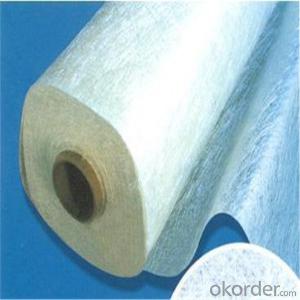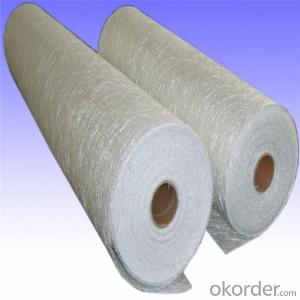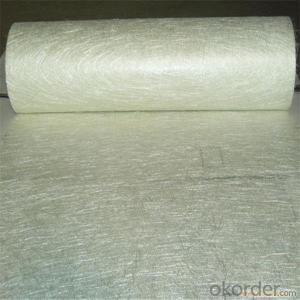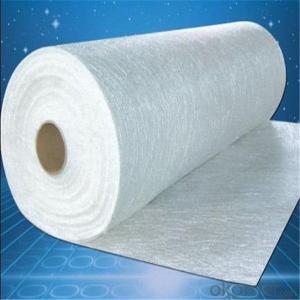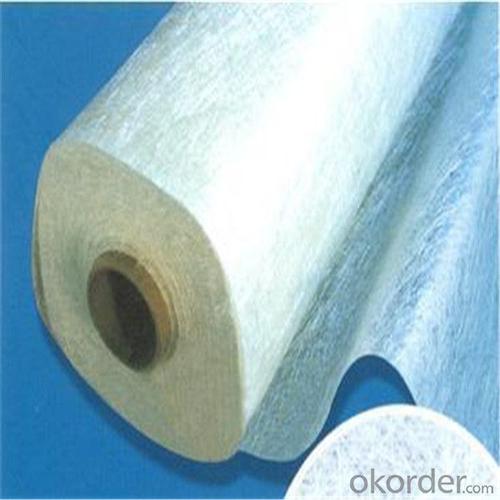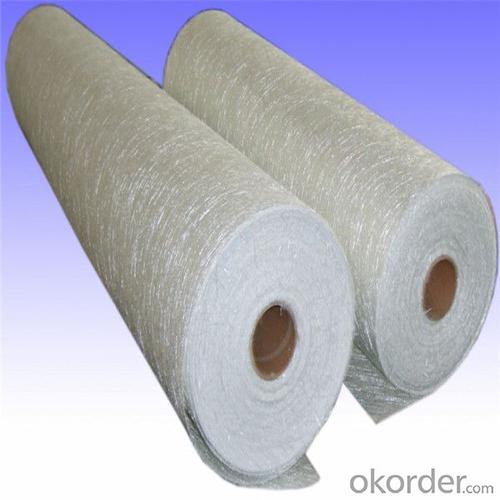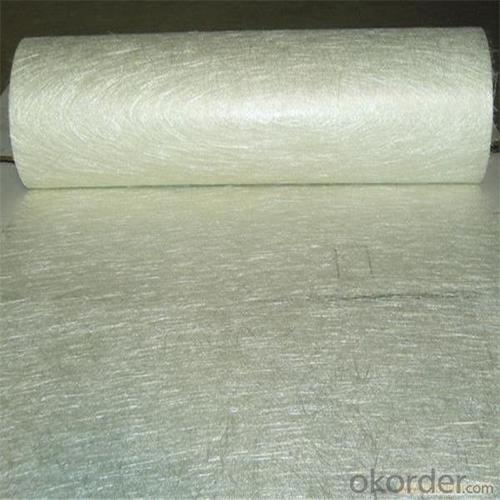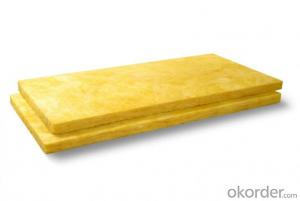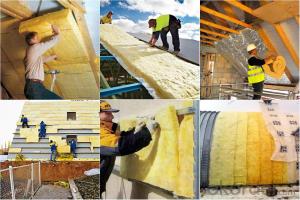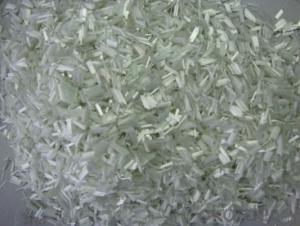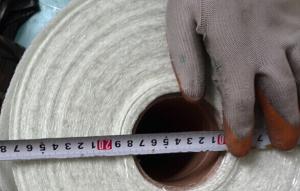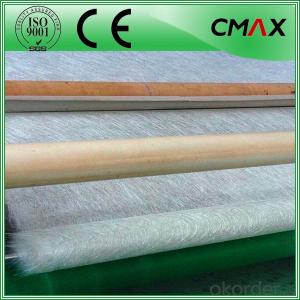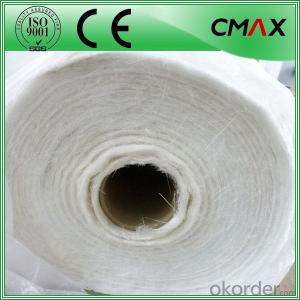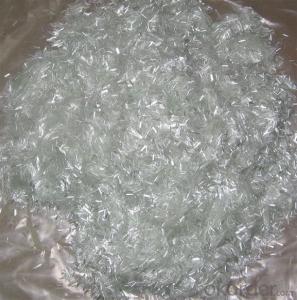Fiberglass Mat Tissue Chopped Strand Mat for Thermoplastics
- Loading Port:
- Tianjin
- Payment Terms:
- TT OR LC
- Min Order Qty:
- 100 m.t.
- Supply Capability:
- 20000 m.t./month
OKorder Service Pledge
Quality Product, Order Online Tracking, Timely Delivery
OKorder Financial Service
Credit Rating, Credit Services, Credit Purchasing
You Might Also Like
Quick Details
| Technique: | Chopped Strand Fiberglass Mat (CSM) | Dimensions: | 450gsm | Mat Type: | Continuous Filament Mat |
| Fiberglass Type: | E-Glass | Softness: | softness | Place of Origin: | Jiangxi, China (Mainland) |
| Brand Name: | cnbm | Model Number: | 450gsm | color: | white |
| fiberglass type: | E glass | product: | e-glass powder chopped stand mats | binder: | powder or emulsion |
| width: | 1040 or 1270mm, as your requirement | weight: | 30 or 45kg/roll | paper tube diameter: | 90mm |
| outer diameter of roll: | 256mm | packing: | plastic film+carton box + pallet |
Packaging & Delivery
| Packaging Details: | plastic film+carton box + pallet |
| Delivery Detail: | 15-20days |
Specifications
1.e-glass powder chopped stand mats
2.binder:power or emulsion
3.width:1040mm or 1270mm
4.weight:450gsm
Picture
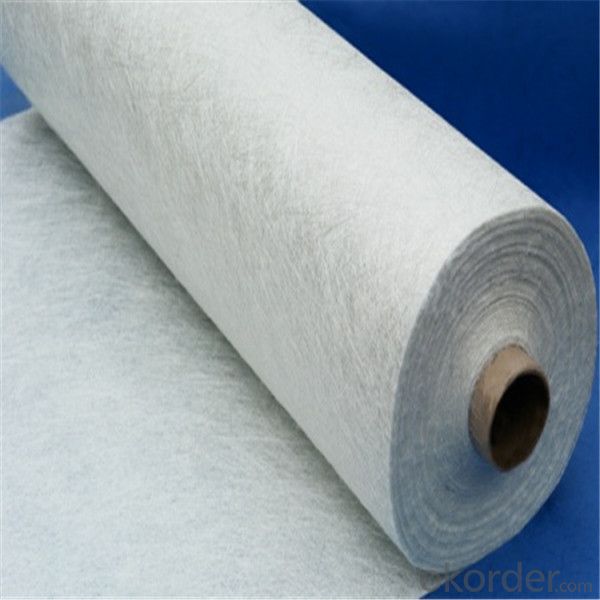
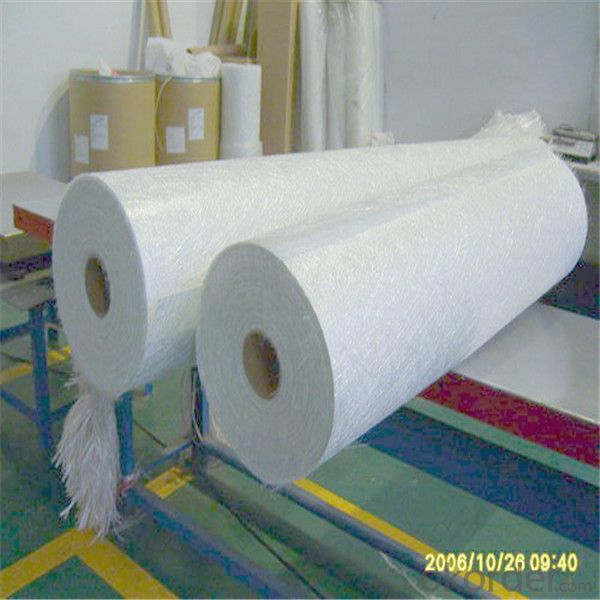
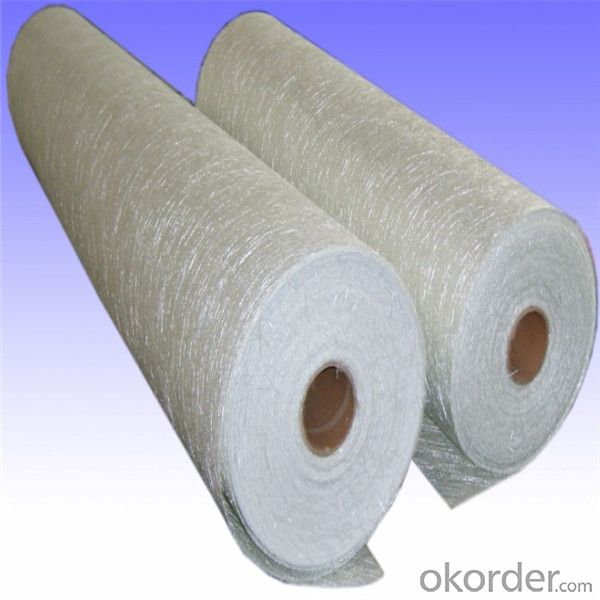
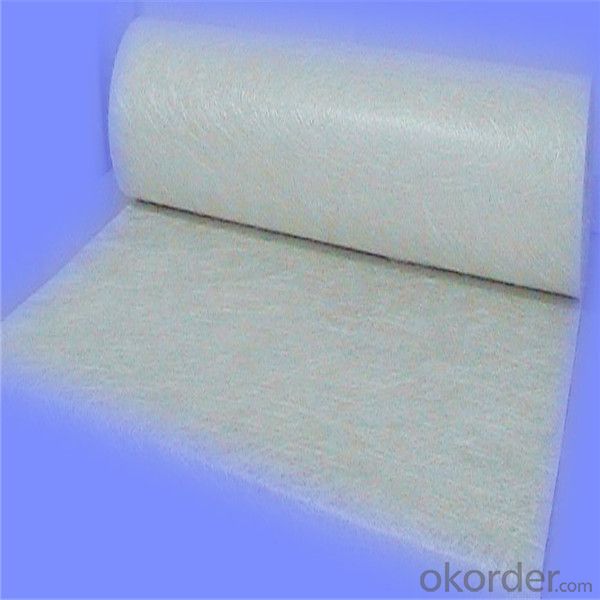
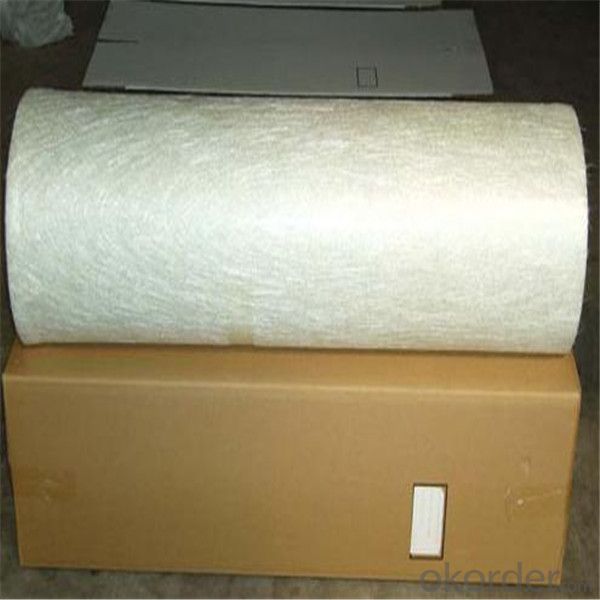
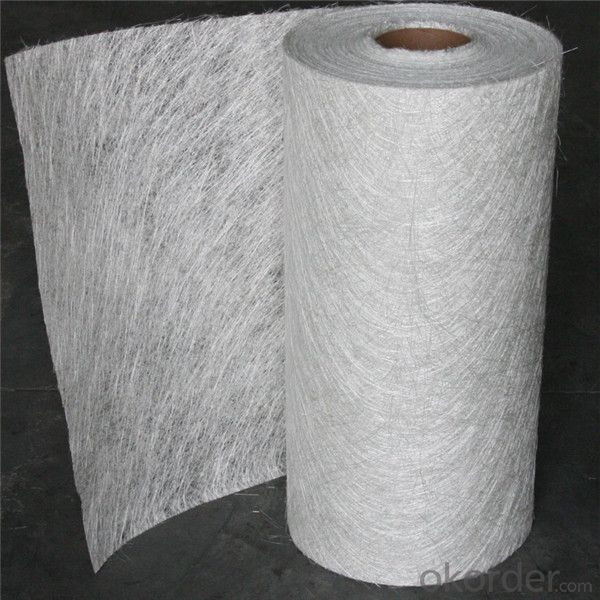
- Q: What is fiberglass mat tissue?
- Fiberglass mat tissue is a non-woven material made from fine glass fibers that are randomly laid and bonded together. It serves as a reinforcement material in various applications, providing strength, durability, and improved mechanical properties to the final product.
- Q: Can fiberglass mat tissue be used for aerospace applications?
- Yes, fiberglass mat tissue can be used for aerospace applications. Fiberglass mat tissue is a lightweight and strong material that is commonly used in the aerospace industry for various purposes. It is often used as a reinforcement material in composite structures, such as aircraft wings, fuselages, and other components. The high strength-to-weight ratio of fiberglass mat tissue makes it an ideal choice for aerospace applications, as it helps to reduce the overall weight of the aircraft while maintaining structural integrity. Additionally, fiberglass mat tissue is resistant to corrosion and can withstand extreme temperatures, which are important factors in aerospace environments. Overall, fiberglass mat tissue is a versatile material that meets the stringent requirements of aerospace applications and is widely used in the industry.
- Q: What are the different surface finishes available for fiberglass mat tissue?
- Some common surface finishes available for fiberglass mat tissue include smooth, textured, embossed, and matte finishes. These finishes can provide various aesthetic effects and enhance the performance of the fiberglass mat tissue in different applications.
- Q: What are the different weights available for fiberglass mat tissue?
- Fiberglass mat tissue, which is widely used in various industries including construction, automotive, and marine, comes in different weights or thicknesses to cater to different applications and requirements. The weight of fiberglass mat tissue is usually measured in grams per square meter (gsm) or ounces per square yard (oz/yd²). Typically, the weights available for fiberglass mat tissue range from around 30 gsm (1 oz/yd²) to 150 gsm (5 oz/yd²) or even higher. The weight of the tissue determines its strength, rigidity, and durability. Lightweight fiberglass mat tissue, such as those weighing around 30-50 gsm (1-1.5 oz/yd²), is commonly used for applications where a high level of flexibility and conformability is required. These lighter weight tissues are often used in the production of laminates, reinforcing materials, and lightweight composites. Medium weight fiberglass mat tissue, usually ranging from 70 gsm (2 oz/yd²) to 100 gsm (3 oz/yd²), provides a balance between flexibility and strength. It is frequently used in applications such as roofing, insulation, and wall panels, where structural integrity and thermal insulation properties are important. Heavyweight fiberglass mat tissue, which can weigh between 120 gsm (4 oz/yd²) and 150 gsm (5 oz/yd²) or more, offers excellent strength and rigidity. This type of tissue is commonly used in demanding applications like boat hulls, automotive body parts, and industrial equipment, where durability and resistance to impact and stress are crucial. It is important to note that the availability of different weights of fiberglass mat tissue may vary depending on the manufacturer and the specific requirements of the application. In some cases, custom weights can be produced to meet unique project needs. In conclusion, fiberglass mat tissue comes in a range of weights to suit different applications. Choosing the appropriate weight is crucial to ensure optimal performance and long-term durability in various industries.
- Q: Can fiberglass mat tissue be used for ceiling insulation?
- Ceiling insulation requires specific materials that are more suitable and effective, such as fiberglass batts, cellulose, or foam insulation. These materials are designed to provide thermal resistance and reduce heat transfer between the interior and exterior of a building. Using fiberglass mat tissue for ceiling insulation is not recommended as it is not designed for insulation purposes. It is commonly used in construction applications like reinforcing plaster or other building materials, but it lacks the necessary thickness to effectively insulate ceilings. In addition, fiberglass insulation materials can pose safety risks as they release airborne particles and fibers that can be harmful if inhaled. Therefore, it is crucial to use insulation materials specifically engineered for ceiling insulation to ensure energy efficiency, comfort, and safety in your home or building.
- Q: What is the expected lifespan of fiberglass mat tissue in underground applications?
- The expected lifespan of fiberglass mat tissue in underground applications can vary depending on various factors such as the specific conditions of the underground environment, the quality and thickness of the fiberglass mat tissue, and the level of maintenance and care provided. However, on average, fiberglass mat tissue is known for its durability and longevity, making it suitable for underground applications. In general, fiberglass mat tissue is designed to be highly resistant to corrosion, moisture, and other environmental elements commonly found in underground settings. This makes it a reliable choice for applications such as underground pipes, tanks, and other infrastructure where protection against deterioration is crucial. With proper installation and regular maintenance, fiberglass mat tissue can have an expected lifespan of 50 years or more in underground applications. However, it is essential to note that this estimate can vary depending on the specific conditions and usage of the fiberglass mat tissue. To ensure the maximum lifespan of fiberglass mat tissue in underground applications, it is recommended to follow industry best practices, such as proper installation techniques, regular inspections, and addressing any issues, such as cracks or damage promptly. By doing so, the lifespan of fiberglass mat tissue can be extended, providing long-term reliability and durability in underground settings.
- Q: Can fiberglass mat tissue be used for insulating exterior walls?
- Yes, fiberglass mat tissue can be used for insulating exterior walls. Fiberglass mat tissue is a type of insulation material that is commonly used for its excellent thermal and acoustic insulation properties. It is made of fine glass fibers that are bonded together with a binder, creating a flexible and lightweight material. When used for insulating exterior walls, fiberglass mat tissue is typically installed between the wall studs or in the wall cavities. It helps to reduce heat transfer by trapping air within its fibers, which acts as a barrier against heat loss or gain. This insulation material can significantly improve the energy efficiency of a building by reducing the need for heating or cooling, thereby reducing energy costs and carbon emissions. Fiberglass mat tissue is also resistant to moisture, mold, and mildew, making it suitable for exterior applications. It helps to create a more comfortable and healthier indoor environment by preventing the growth of harmful microorganisms and reducing condensation. Additionally, fiberglass mat tissue is fire-resistant, adding an extra layer of safety to the building. Overall, fiberglass mat tissue is a versatile and effective insulation material that can be used for insulating exterior walls. Its thermal, acoustic, moisture resistance, and fire-resistant properties make it an excellent choice for improving the energy efficiency and comfort of buildings.
- Q: How does fiberglass mat tissue compare to fiberglass insulation batts?
- Fiberglass mat tissue and fiberglass insulation batts serve different purposes and have distinct characteristics. Fiberglass mat tissue is primarily used as a reinforcement material in various applications such as roofing, wall coverings, and composite materials. It provides strength, durability, and improved dimensional stability to the finished product. On the other hand, fiberglass insulation batts are specifically designed for thermal insulation purposes, typically used in walls, ceilings, and attics to prevent heat transfer. They are engineered to trap air pockets within the material, providing excellent thermal resistance. While both products are made from fiberglass and offer certain insulation properties, their specific applications and performance differ significantly.
- Q: What are the different grades of fiberglass mat tissue available?
- There are several grades of fiberglass mat tissue available, ranging from lightweight to heavyweight. These grades are typically classified based on their weight per unit area, with lighter grades being thinner and more flexible, while heavier grades are thicker and more rigid. The specific grades and their corresponding weights may vary depending on the manufacturer, but generally, they are categorized as light, medium, and heavy.
- Q: Can fiberglass mat tissue be used for insulation in power plants?
- Yes, fiberglass mat tissue can be used for insulation in power plants. Fiberglass mat tissue is a lightweight and flexible material that is known for its excellent thermal insulation properties. It is often used as a thermal barrier to reduce heat transfer in various applications, including power plants. By insulating the equipment and pipes, fiberglass mat tissue helps to prevent heat loss and increase energy efficiency in power plants. Additionally, fiberglass mat tissue is non-combustible, making it a suitable choice for insulation in environments where fire safety is paramount.
Send your message to us
Fiberglass Mat Tissue Chopped Strand Mat for Thermoplastics
- Loading Port:
- Tianjin
- Payment Terms:
- TT OR LC
- Min Order Qty:
- 100 m.t.
- Supply Capability:
- 20000 m.t./month
OKorder Service Pledge
Quality Product, Order Online Tracking, Timely Delivery
OKorder Financial Service
Credit Rating, Credit Services, Credit Purchasing
Similar products
Hot products
Hot Searches
Related keywords
